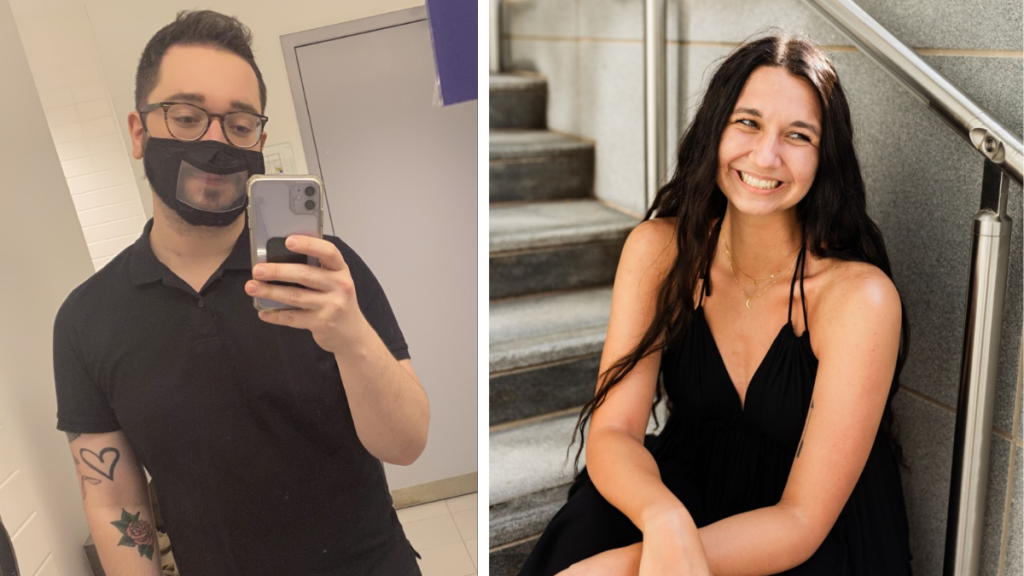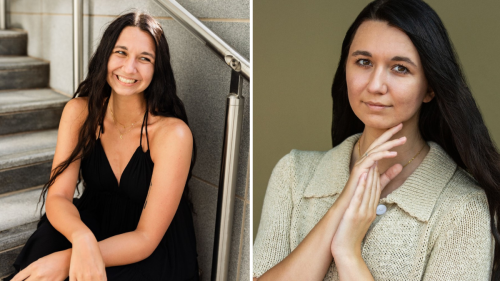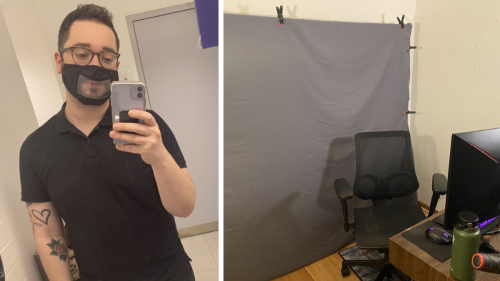
The Importance of Digital Accessibility
Equal access to social media, online education, and employment is crucial for this day in age. Since the Covid-19 pandemic began, doing things virtually has been on the rise. Some people love having access to everything online, but those with disabilities have had to adapt in different ways. Digital accessibility is vital for making sure everyone feels included in the digital space. I spoke with three people who rely heavily on digital accessibility on why it’s important to them and what their hopes are for the future.
First I spoke with Kirsten Kirshbaum, a current Strategic Communication Masters student at Columbia College Chicago.

Kirsten Kirshbaum, Strategic Communications Masters Student at Columbia College Chicago
- Why did you choose the Strategic Communications program at Columbia?
I looked into a lot of different programs related to strategic communication and was even accepted by some. Columbia is where I got my bachelor’s degree so I was already familiar with the professors. But ultimately, it had a layout of classes that fit exactly what I was interested in. I also got more of a scholarship at Columbia and did not have to relocate which is what made my final decision. - As someone who is hard of hearing, how did you go about looking for master’s programs? What qualifications in regards to digital accessibility were you looking for when choosing a school or a program?
First I looked for programs that I was interested in. Then after deciding that the program could be a good fit, I would look into their disability services. Some colleges had a lot of information about the services they offer, some did not. I would also look into the state laws regarding interpreting certification to get a good idea of the types of interpreters I could get. Sometimes state laws will require a certain level of licensure to interpret at college. Since I depend on interpreters, things like that are important to me. Being at Columbia for my undergraduate degree, I was already familiar with the services provided and trust the interpreters. - Do you have any advice for future students who are hard of hearing or who have a disability in general on applying to colleges, finding the right program, and succeeding in school?
To succeed, I suggest contacting the disability office as soon as possible so you are able to work closely with them. They are there for you. Also, never be afraid to advocate for yourself, it is your education. You deserve to have access to education just like everyone else. When picking a college, ask questions about services offered during your tours or ask where you can find the information. If the college has an open house, you may even be able to talk to representatives from the office to ask more questions. - What tools has Columbia College Chicago provided to be successful?
I have some of the most amazing interpreters. I used interpreters for the first time at Columbia so I was unsure how to utilize them or ask them to sign things how I do, etc but they all encouraged me and were always patient with me. The premium zoom account has also been very helpful during the pandemic, as has our disability office moving our note-taking services online. - Is there anything in your opinion that Columbia is missing when it comes to digital accessibility?
This is something that very well may be in place without me being aware of it, but I wish that there was training for professors on what to do. Many of my professors have videos without captions or don’t know how to access zoom recordings to send me, etc. As new updates are released, it would be amazing for there to be training on how to utilize the new features. - What are your hopes for the future when it comes to improving digital accessibility?
I would love to see accessibility (in general even) lift off from the bare minimum. We have started to see that with the recent addition of interpreters on Disney+ movies but there is so much left to explore. There is so much room for innovation of new services. Also, while there may be wonderful services available, many cost money. Making programs that are accessible financially is another key aspect that I hope to see resolved in the future.
Next, I spoke with Bronwyn Shlaefer and Ethan Rae, Sign Language Interpreters at Columbia College Chicago.
- In your opinion, why is digital accessibility important?
Bronwyn Shlaefer:
First and foremost, it’s the law. The Americans with Disabilities Act has been on the books since 1990 and the 21st Century Communications and Video Accessibility Act has been on the books since 2010. While both need some updates to stay up to speed with current technologies and cultural shifts in how technology interfaces with our daily lives, the central concept or spirit of both laws is clear: everyone deserves equitable access to digital and physical spaces. Especially in a pandemic or post-pandemic world, so much of our daily functioning depends on access to digital spaces and digital technologies. - What sets Columbia College Chicago apart in your opinion when it comes to digital accessibility?
Bronwyn Shlaefer:
I can only speak to what I see as an interpreter, so I can’t speak to the experiences of D/deaf, Hard of hearing, or disabled students and staff on campus and on Zoom. In general, Columbia tends to be better with providing captions on videos and professors are good about remembering to find in-class materials that are captioned. The school also seems to do a good job of training teachers on how to use Zoom and how to provide students and service providers with the tools and accesses needed to work in class effectively - How has remote learning changed the way you do your job?
Ethan Rae:
Moving to remote work was a financial challenge in the beginning due to the overhead cost of setting up an appropriate space to do my work. Now there are conveniences of working from home, but there are huge inconveniences in relation to ASL. ASL is an expressive language that uses hands, facial expressions, and body movement. Working with a three-dimensional language in a two-dimensional environment causes challenges in communication. There are times wherein person we would produce a sign in a particular way, a more comfortable way, but due to being on screen, we have to adjust the sign to make it understandable and disregard our comfort. This isn’t the first time ASL has been used in a two-dimensional space by any means, but the demand has increased recently making it more common for us to have to sign in an “uncomfortable” way. On a more positive note, remote work has allowed some level of last-minute access for students because so many interpreters are now at home.
Ethan Rae’s home setup for ASL interpreting.
- What are your thoughts on the digital divide?
Ethan Rae:
My thoughts likely echo most people’s thoughts: everyone should have the right to information in a way that they best receive information. I can’t speak for other parts of the world, but here in the United States, there’s no reason we cannot provide internet, technology, and access for all people. The expectation that everyone must fight their way up to receive the very basic communication is ridiculous, especially when these people are usually already at a societal disadvantage. - How can accessibility help an organization, outside of making experiences accessible for people with disabilities?
Bronwyn Shlaefer:
Accessibility services don’t just serve disabled people. When you follow principles of Universal Design and think of how to include a wide range of people in everything you do, you benefit everyone because more people can come together and fully, meaningfully engage with whatever you have to present. To provide one example, captions can serve more than just Deaf and Hard of Hearing people: many people prefer to have captions on something to make sure they haven’t missed anything. Also, second language learners, people with sensory processing disorders, people with ADHD, and other visual learners can benefit greatly if captions are provided. - What are your hopes for the future when it comes to improving digital accessibility?
Bronwyn Shlaefer:
I think greater supports and training for content creators and service providers would be a good first step. Having more neurodivergent and disabled creators, engineers, and organizers at the table across the digital world would be a definite goal and dream so that decisions that impact accessibility are made by those who would use them most.
